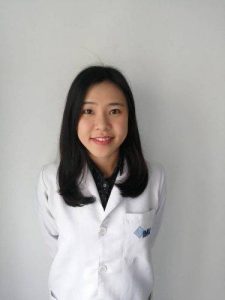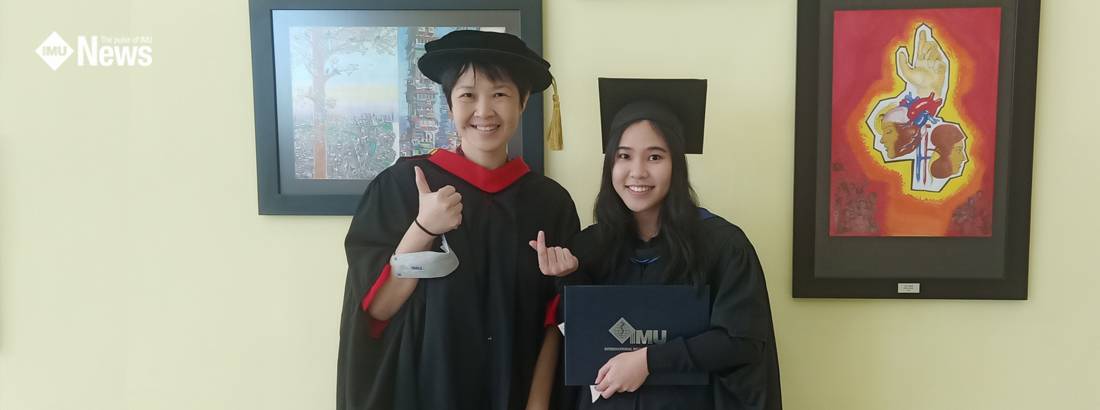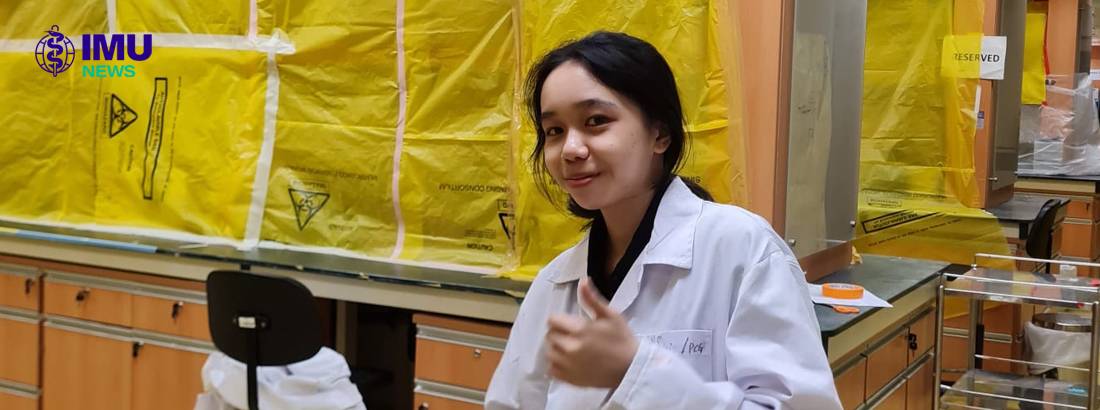Having recently graduated in November 2023 with a Master of Science (MSc) in Molecular Medicine, my academic journey has been transformative, marked by pioneering research on the cytotoxicity of Ophiocordyceps sinensis, a type of medical mushroom, on keratinocyte cells. This exploration at the intersection of molecular medicine and natural compounds underscores the programme’s interdisciplinary essence and highlights the evolution of my research skills.
My Undergraduate Studies in Biomedical Science at IMU
My research journey began three years ago during my undergraduate years as a biomedical science student at IMU, where I developed foundational microbiology lab techniques such as DNA extraction, PCR, and biofilm formation of bacteria. These skills served as the foundation for my early entry into research and publication during my undergraduate programme. This experience equipped me with the proficiency to navigate the complexities of scientific writing and contribute to the body of knowledge in my field. The early exposure laid the groundwork for my research proficiency and demonstrated my scientific writing abilities, exemplified by a published article titled “Characterisation of Bacterial Isolates from Infected Post-Operative Patients in a Malaysian Tertiary Heart Care Centre”.
Transitioning into the Master’s programme, my focus shifted from microbiology to cell biology. Embracing this new expertise, I immersed myself in advanced skills, including keratinocyte cell culture, cell cytotoxicity assays, cell viability assays, ELISA, and protein content determination. The Master’s programme’s multidisciplinary curriculum provided a holistic view of molecular medicine, allowing exploration beyond my initial research project during my undergraduate studies. This shift broadened my understanding of cellular processes and their implications in the context of molecular medicine.
Studying via Open and Distance Learning Mode
Enrolling in an online distance learning (ODL) programme for my master’s added an extra layer to the challenge of balancing research, coursework, and office responsibilities. This emphasized the importance of effective time management, meticulous planning, and the cultivation of organisational skills essential for navigating my research journey during postgraduate study.
Simultaneously, my dedication to professional growth was evident in my role as a Quality Executive at Premier Integrated Lab, providing handson experience in quality assurance practices within the medical sciences field. Navigating my academic journey highlighted the importance of effective time management, seamlessly integrating coursework and research efforts.
Transitioning to the Master’s programme heightened demands, requiring a delicate balance between office responsibilities and academic commitments. The refined skill of effective time management proved instrumental, enabling me to delve into the depths of molecular medicine without compromising work quality.

As my postgraduate research progressed, I witnessed the evolution of my analytical abilities and the refinement of experimental techniques. Mastery of cell culture methodologies, precise execution of cytotoxicity assays, and adept handling of ELISA techniques became second nature. Gaining proficiency in these techniques throughout the Master’s programme broadened my expertise and established me as a skilled researcher within my research journey.
Concluding my Master’s journey was a transformative chapter, progressing from foundational microbiology lab techniques to pioneering research on the cytotoxicity of O. sinensis on keratinocyte cells. This evolution not only honed my technical skills but also emphasized the significance of effective time management and continuous learning. These qualities will undoubtedly shape my future contributions to the scientific landscape.
Written by: Yong Yi Keng who graduated with her MSc in Molecular Medicine in November 2023.



